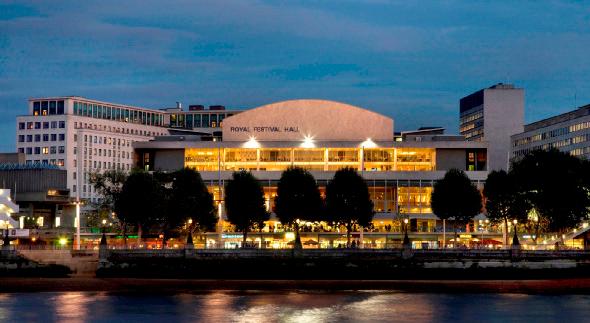
2 minute read
SONGS OF TRAVEL
Welcome to our 2022 / 23 season, Songs of Travel. It is the final instalment of our ‘Six Chapters of Enlightenment’ series here at the Southbank Centre.
The idea of a journey excites us all. Whether it is a new adventure or one we have made dozens of times before. Travel and the idea of leaving home left a deep impression on the British and European mindset in the 17th and 18th centuries. And, of course, it is one of the great literary metaphors with the promise of discovering something about ourselves on the way to our destination.
Advertisement
The 18th century was a whirlwind of correspondences. International navigation was leaping forward with Captain James Cook’s maritime expeditions whilst newspapers, novels and engravings were distributing ideas and images in a manner previously unparalleled. As a result, the intellectual aspiration of the common man gained a wholly new stride. One which would reach beyond the bounds of the immediate and conventional into new realms of existence: far off lands, radical political thought, belief beyond convention and transports of the artistic soul which would make the desperate leap into the passions and turmoil of romanticism. The song of travel eventually becomes the realisation of self as hero in the flight from non-social space to the strange and wonderful of the 19th century: exoticism, opiate dreams, mesmerism, madness and the supernatural.
The music we’ve selected for the season reflects journeys that are physical and of the mind. It is the work of creative thinkers that were able to imagine unknown places through the descriptions of others, to put the fantastical to use to satirise the contemporary, to reimagine the past in new ways, to explore our individual freedom, our sense of collective belonging, and the need to travel to find their own place in the world, a journey many of us still make today.
Thank you for joining us today and supporting not just the OAE but live performance by the whole cultural community. Music by its very existence is about community and shared journeys, an adventure that looks beyond that which divides us to seek joy in common belief.
Introduction
Václav Luks
The name of few baroque composers can be associated with such a long and venerable tradition as the name of JS Bach, and few works in music history have been as affected by this kind of tradition to such a degree as the Mass in B minor. For today’s performers, this situation is a great inspiration on the one hand, but on the other hand we are faced with ingrained ideas about the work that have been shaped by the aesthetics of the 19th Century and by the impassioned discourse about the interpretation of Bach’s works during the 20th Century.
The Mass in B minor is an extraordinarily complex work, in which Bach touched upon widely divergent musical genres and compositional techniques. The flattened impression of his music that we have inherited from the 19th Century and a romanticized fascination with symbolism are reflected in the interpretation of Bach’s music to this day.
Performance traditions and the habits of musicians in the 20th and 21st Centuries have become blinkers, preventing us from taking an unbiased view of the music of the past and from ridding ourselves of centuries worth of layers of thoughtlessly repeated clichés and of aesthetic norms passed from one generation to the next. In the case of the Mass in B minor, what is involved is not the discovery of some sort of universal, historically-based interpretive truth, but rather the courage to examine one of the greatest works of music history without being intimidated by its monumentality, and with eagerness to discover its lovely colours in their natural beauty as revealed when the layers of performance tradition are removed.
This introduction is taken from Václav Luks’ note to accompany his recording of the Mass in B minor on Accent (ACC 24283). Translation by Mark Newkirk. You can read the full article on the OAE’s blog.
There will be a pre-concert talk with Václav Luks in conversation with Tommy Pearson at 6.00pm in the Level 5 Function Room, Green Side, Royal Festival Hall.






